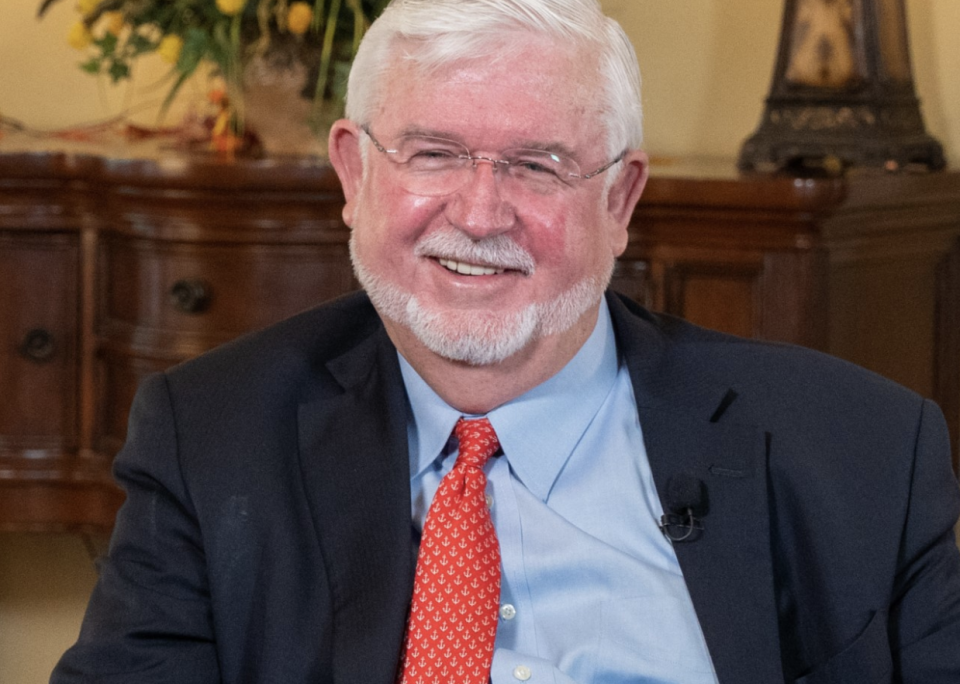Meet the Republican who wants to cancel college debt
WASHINGTON — He likes guns, and Donald Trump, meaning that at least superficially, there is little distinction between A. Wayne Johnson and most other Republican candidates for higher office across the United States.
The office Johnson is seeking happens to be that of U.S. senator from Georgia, which will be open after Sen. Johnny Isakson retires at the end of 2019. Georgia’s current governor, Brian Kemp, will make the appointment.
Last year, Kemp won the gubernatorial mansion by narrowly defeating progressive Democratic candidate Stacey Abrams. Abrams alleged that Kemp won because he and fellow Republicans engineered a massive voter suppression effort targeting African-Americans.
Abrams’s defeat became a cause célèbre for progressives and good-government watchdogs; Johnson dismissed her accusations with the confidence of other Republicans, asserting that Georgia “absolutely” does not have an issue with voter suppression.
So far, so good, as far as Johnson’s conservative bona fides are concerned.
Until he starts talking about college loans. College loans are the sole issue propelling Johnson’s candidacy. And they are propelling him solidly into the territory of Bernie Sanders and Elizabeth Warren, even as he seeks a Senate seat in a state Trump won in 2016, albeit by only 5 points. He is doing so after two years in the Department of Education, where he worked on higher education financing. That experience left him so rattled that he now wants to forgive college loans altogether.
As far as single-issue campaigns go, college loans don’t seem to have the moral sexiness of, say, climate change. But they too are a kind of existential threat, with nearly $1.6 trillion owed in outstanding debt taken out by 43 million total borrowers. Some believe college loans are due for the kind of reckoning that befell the overleveraged housing market in 2007-08.

That fear is enough for Johnson to justify a run for the U.S. Senate, despite having never sought public office before. His plan is simple: He wants to forgive all student debt up to $50,000. (That would cover most student debt, since the average loan is about $33,000.) That would be in addition to the $50,000 grant each student would receive to attend college in lieu of having to take out new loans. The twin initiatives would be funded by a 1 percent corporate tax.
Taxing corporations to pay for education is a position that might sound at home on the debate stage — for the Democratic presidential nomination. It seems plainly at odds with where the Republican Party is in 2019, and where it has been since roughly the Goldwater era. But he insists that expelling the government from “the student loan business” is fundamentally conservative, if also pretty expensive. It’s also a fair question whether federal education subsidies amount to much of an “expulsion.”
Johnson is one of about 500 candidates who hope to be named by Kemp to Isakson’s seat next year. Whoever earns it will have to defend the seat in 2020 and then again in 2022, when Isakson would have faced reelection. Democrats are bound to mount a fierce campaign for the seat, since Georgia has been shifting leftward for some years. That reality means that Kemp is bound to appoint someone who is politically adroit enough to defend the seat only a few months later.
Not only that, but Johnson knows perfectly well that being elected on a promise and making good on that promise are several galaxies apart. Despite that, he is intent on spreading his message. That effort has been helped along by the fact that he worked for Betsy DeVos, the education secretary despised by progressives. His ideas, which sound like they’re borrowed from those very same DeVos-hating progressives, made Johnson a curiosity for the national media, where he has gotten plenty of favorable attention.
Many of the policies DeVos has enacted were reversals of previous approaches that tried to lessen the financial burden on students. Johnson, who had previously worked in finance, says he is proud of his service in the Trump administration. According to the Institute for College Access & Success, though, student debt grew by a quarter-trillion dollars during the two years Johnson spent in Washington.
_____
Download the Yahoo News app to customize your experience.
Read more from Yahoo News:



